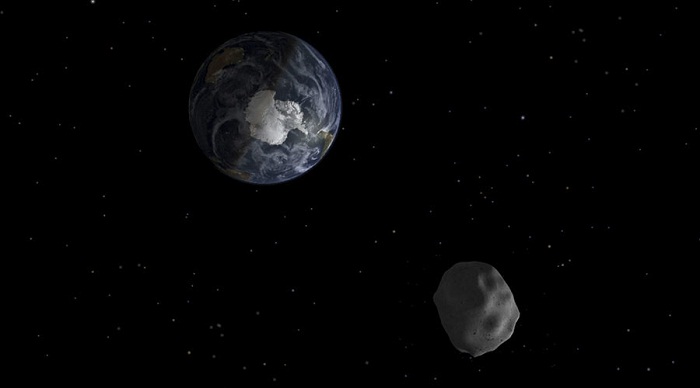The rock’s exact size is unknown, but it could be as wide as 2.6 kilometers, according to estimates. It will zip past at a speed of more than 64,000 kilometers an hour at a distance of about 25 million kilometers – about 67 times further than the moon.
The size of 2000 FL10 makes it large enough to be considered a potentially hazardous object (PHO). If it were to hit our planet, the effect would be devastating. The impact of such a PHO collision would potentially be similar to that of many thousands of atomic bombs blowing up at once.
As such an unwelcome guest from space is more likely to hit the ocean than land (as more of the Earth’s surface is covered with water), it would instantly send a huge quantity of water into the atmosphere, while at the same time causing devastating tsunamis and huge tidal waves. Sunlight would also be blocked out, possibly for years, by clouds of dust, dirt, and water sent into the atmosphere by the blast. During the resulting artificial winter, many species would face danger of extinction.
The good news is that, although 2000 FL10’s size meets PHO standards, it is still not listed as a threat, because it won’t come close enough to Earth. The asteroid will pass our planet by at a distance well outside the 7 million kilometer zone that would indicate a risk of collision.
NASA says there are no asteroids or comets observed that pose a threat of impact in the foreseeable future and estimates the chance of a PHO collision in the next century at less than 0.01 percent. But collisions with PHOs have happened in the past. While small meteorites invade our planet’s atmosphere every day, the last really big impact was 65 million years ago. Scientists believe that a comet hit the Yucatan peninsula in Mexico at that time, causing such catastrophic damage to the environment that all the dinosaurs died out.
More about:
















































